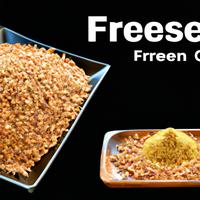
1 serving (5 grams) contains 16 calories, 1.2 grams of protein, 0.3 grams of fat, and 2.9 grams of carbohydrates.

Log this food in SnapCalorie

Nutrition Information
Calories |
489.4 | ||
|---|---|---|---|
% Daily Value* |
|||
| Total Fat | 9.7 g | 12% | |
| Saturated Fat | 2.2 g | 11% | |
| Polyunsaturated Fat | 0 g | ||
| Cholesterol | 0 mg | 0% | |
| Sodium | 101.5 mg | 4% | |
| Total Carbohydrates | 88.4 g | 32% | |
| Dietary Fiber | 37.3 g | 133% | |
| Sugars | 0 g | ||
| protein | 34.8 g | 69% | |
| Vitamin D | 0 mcg | 0% | |
| Calcium | 266.7 mg | 20% | |
| Iron | 50.8 mg | 282% | |
| Potassium | 1166.7 mg | 24% | |
* Percent Daily Values are based on a 2,000 calorie diet. Your daily values may be higher or lower depending on your calorie needs.
Food Attributes
Source of Calories
About Fenugreek
Fenugreek is a versatile herb and spice native to the Mediterranean, Middle East, and South Asia, widely used in cooking and traditional medicine. Its seeds and leaves have a slightly bitter, nutty flavor, commonly found in Indian, North African, and Middle Eastern cuisine, adding depth to curries, stews, and spice blends. Nutritionally, fenugreek is rich in fiber, iron, magnesium, and protein, making it a powerhouse ingredient for promoting digestion, regulating blood sugar levels, and supporting heart health. It also contains compounds with anti-inflammatory and antioxidant properties. Fenugreek’s high fiber content improves satiety, aiding in weight management. Despite its benefits, excessive consumption can cause digestive discomfort, and its concentrated supplements should be taken cautiously, especially for pregnant individuals. With its unique flavor and variety of uses, fenugreek unites culinary depth with nutritional value.



